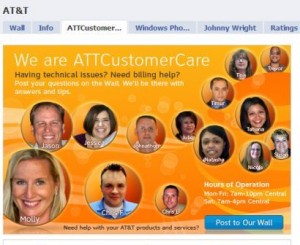People often use the terms crisis and issues differently. Crisis seems to denote something more significant, like a CEO having a heart attack or a life-threatening natural disaster. Issues, on the other hand, are much more common. An online customer complaint over the weekend during off hours or a competitor trying to sell their brand on your Facebook page.
Issues can remain just that and usually can be resolved rather quickly if you have and employ the response protocol we talked about in yesterday’s post. By the same token, issues can work their way toward becoming crises if they are ignored or are handled improperly.
That said, I thought it might be interesting to look at the aforementioned issues and discuss how you might respond to them in order to avoid any escalation. So let’s take a closer look and see how both might play out.
Customer complaint online over the weekend during off hours
This example screams for a policy and guidelines. Customer have come a long way since we could first tweet or Facebook our complaints and watch the customer pile-on start to domino. These days, customers will often look first to see how the company responds or if it is prepared before piling on. And that can work to a company’s advantage if its employees are indeed prepared and they have an issues plan and policies already thought out in advance.
Think about it. Many companies aren’t open 24/7 on the weekends for you to call them and as a customer service question. They key is to pick your hours of operation and then clearly post them on your social media presences as well as your website. The difference in response can be significant for your brand, especially in the short-attention-span society we live in today.
Consider this. If you have no policy about hours of service posted on your Twitter account page and a customer complains, that complaint may be followed soon by another complaint saying the customer is being ignored. Or other customers may choose to pile on because they feel they’re being ignored too. But, if you have hours clearly posted on your social network home page, a customer complaint could be followed by a community member commenting to tell the complainer about the set hours. If people know the rules, they will help share them with others. And having set hours of operation online is all part of a set crisis plan and response protocol.
Competitor trying to sell their brand on your Facebook page
You may read this one and think, “Yeah, right. What competitor would be dumb enough to do that?” And my response would be that I’ve seen it several times before. Sometimes it’s an individual proprietor with a similar business just spamming your Facebook page. But other times, it’s a similar brand trying to confuse customers and use your built up community to steal people away.
This happens more than you think and while it definitely falls in more of the issue category, a misunderstanding by a customer or a ill-fated response from the company can escalate things when they don’t need to be escalated. Again, we go back to your response protocol and having a policy. If you don’t have a set of guidelines on how your brand handles situations like this one, then if you decide to delete the comments, that can be misinterpreted as censorship. But a clear policy against spamming and solicitation makes it much easier to clean up such a scenario.
Here’s an approach I would suggest:
- Create and make public on the Facebook page a policy note that says posts that solicit will be removed per page policy.
- Remove these types of posts in the future, pointing to that policy criteria.
- If the issue persists, try and take it offline. Comment on the post and offer an offline outlet — phone number or e-mail address — the poster can use to contact the brand. And if you want to take an even more proactive approach, message the person on Facebook and try to resolve things that way.
A couple of things happen when you take the above approaches. Your company sets expectations, so even if people aren’t happy about the wait or their comments being removed, they can’t say they didn’t know the rules. And second, you give your community a way to help you manage. Because now they know the rules, they know you, they trust you, and they feel ownership of your community, which means they want to help.
Most people call it a crisis plan, but make sure your brand’s version factors in everyday issues like the ones above that can actually be opportunities and win you reputation points if handled correctly. When a true crisis happens, there is going to be some fallout. It’s unavoidable. But the organizations that can keep the issues from blowing up and earn credibility along the way will have a lot of goodwill built up when and if a crisis hits.







February 1, 2011
In-depth, Public relations, Social media